#plutus
Text
Someone: Persephone is Demeter's only child. That's just facts.
Despoina, Iacchus, Arion, Philomelos, Plutus: You are not only a clown, you're the entire fucking circus.
#persephone#demeter#despoina#iacchus#arion#philomelos#plutus#incorrect greek mythology quote#incorrect greek mythology#incorrect greek gods#yes Persephone is Demeter's most famous child but she's not the only one#do some research please it only takes like two minutes
312 notes
·
View notes
Text
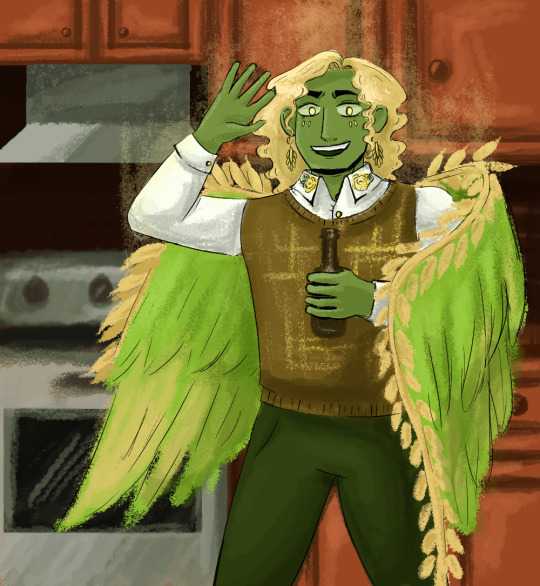
A fun art idea I had for @genericpuff! The character is a Lore Rekindled version of my version of Plutus, Demi-god brother of Persephone and son of Demeter and Iaison. (He's blind that's why his eyes are more glossy)
A style emulation of a style emulation! It was hard to nail the glow and went a little ham with the background! Lore Rekindled is a great read and I love your art style! Thank you so much for the passionate petty project, it's a gift and Persephone deserves that justice!
If you'll haven't yet please read Rekindled!!!
(Just realized I should have blurred the background)
#lore rekindled#anti lore olympus#anti LO#technically an “LO oc” but want to clarify I am a hater#Plutus#my art
99 notes
·
View notes
Text
*Persephone gets a phone call from Demeter*
Persephone: Hello, Mom?
Demeter: Hi, sweetie, is your brother there? I need to talk to him.
Persephone: No, Plutus is dead.
Plutus, *very much alive next to Persephone*: PERSEPHONE WHAT THE FUCK-
#don't ask how persephone knows she was talking about plutus#persephone#plutus#demeter#persephone gets jealous very easily. she needs mama attention#greek gods#greek mythology#incorrect greek gods#incorrect greek mythology#incorrect greek god quotes#incorrect greek quotes
146 notes
·
View notes
Text
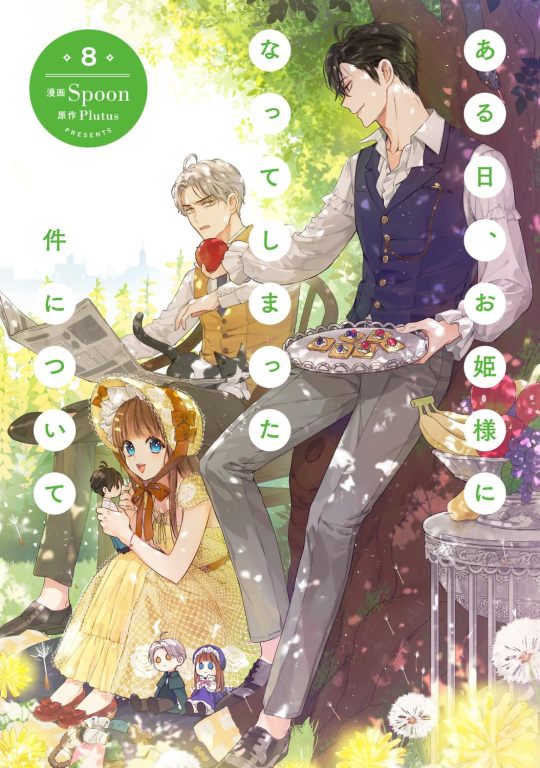
Who Made Me a Princess Vol.8
#who made me a princess#aru hi ohimesama ni natte shimatta ken ni tsuite#spoon#plutus#manhwa#korean comics
21 notes
·
View notes
Text
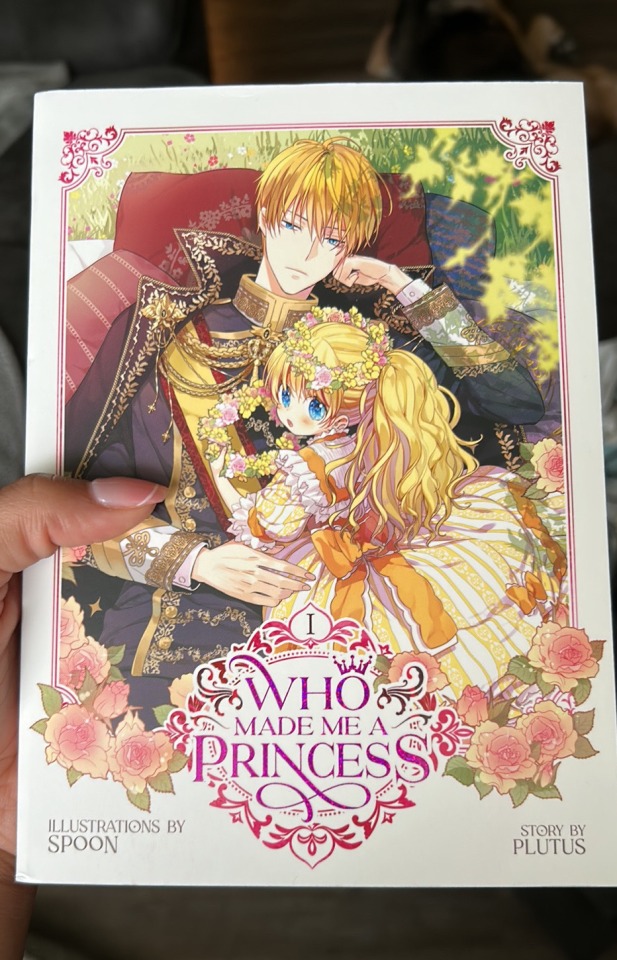
Let’s gooooooo. Who Made Me A Princess english print is finally out!
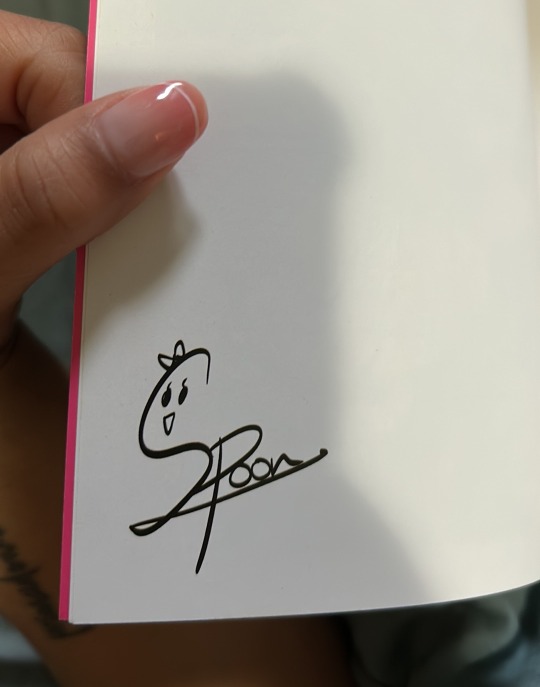
#who made me a princess#wmmap athanasia#who made me a princess athanasia#claude de alger obelia#athanasia de alger obelia#spoon#plutus
62 notes
·
View notes
Text
Nico, Hazel, Zagreus, Makaria, Plutus, Melinoë and Mal (descendants) and Anubis/Walt, and maybe Lou Ellen and Clovis friend group, let’s call it Underworld Cousins or Chthonic Cousins or something like that. They have a group chat together to gossip about their parents and underworld drama and spread the word about underworld events and invite each other to things, despite being from like 4 different pantheons. They sometimes get in trouble with the gods for this cause pantheons aren’t supposed to mix too much but they don’t really care.
#I don’t think Alabaster would want to be included with Nico and Hazels close involvement with the gods#Nico di Angelo#Hazel Levesque#Zagreus#Makaria#Macaria#Plutus#Melinoë#Mal (descendants)#Mal#descendants#Anubis#Walt Stone#Lou Ellen Blackstone#Clovis#Percy Jackson and the Olympians#Heroes of Olympus#Trials of Apollo#The Kane Chronicles#TKC#Hades#Persephone#Pluto#Osiris#Isis#chthonic kids
73 notes
·
View notes
Text

[PLUTUS]
30/03/2015 13:01:05
I have a lot of credit card debt, due to living beyond my means when I had exorbitant student loan payments. I finished paying off my student loans, but my consumer debt is so huge and my minimum payments so high that I fear I'll never be out from under this enormous weight. I can barely make my payments and make ends meet, and whenever I have an emergency I wind up having to use my cards, which destroys my progress. I don't have any savings because I have a couple of vices I keep trying and failing to curb (books, beer, pastries...) I need something to help me curb my spending, increase my income, and ward off expensive catastrophes.
Thank you for all you do, the glyphs have helped me a lot.
---
(tip for glyphs here)
#problem glyphs#[plutus]#plutus#wealth#debt#money#credit#savings#greek gods#gods#fruit#cornucopia#blessing
133 notes
·
View notes
Text
thought that "plutocracy" was named from Pluto but it's named from Plutus the greek god of wealth. I went to the wiki to learn more and there's not a lot about him except

Only God he didn’t greet, btw he’s usually depicted as a baby or child which doesn’t mean much other than it’s funny to imagine hercules is so strong in moral character that he would refuse to greet a child because the kid is a little rich bastard
#i mean bastard literally too since people can’t agree on his dad#idk what to tag that as#plutus#lol any plutus fans in chat
7 notes
·
View notes
Note
You know I kind of like the idea of comparing Macaria, Melinoe, and Zagreous to his mother, uncle, and aunt when it comes to relationships.
Oh, you mean Persephone’s brother and sister??
Lol yeah, I mean, I’d say their (“their” being Zagreus, Melinoe, and Macaria) sibling relationship is pretty healthy for the most part. Zagreus and Melinoe have a bit of a sibling rivalry going on when they’re kids (mainly because Zagreus wanted a little brother when he learned his mother was having a baby and instead came Melinoe taking up everyone’s attention since she’s the first baby girl of the “Big 3” family, so he held a grudge against Mel for a while lol) but when they get older it just turns into them making sarcastic remarks and teasing each other. Also Zagreus and Melinoe honestly don’t really have beef or anything with Macaria. Yeah, Melinoe got a little jealous here and there when she was first born because she was no longer the baby or the only girl in the family, but she learned to like Mac and got over it pretty quickly (it was probably when she spit up on Zagreus one day and it made her laugh so hard lol). Macaria is just like her mother lol, she’s too sweet and adorable to hate lmao.
But yeah, Zagreus, Melinoe, and Macaria don’t hate each other or resent each other for who they are. They’re just siblings. They have their fights and arguments, but they love each other. I suppose it helps that neither Persephone nor Hades show favoritism towards their kids. That’s the main drive with Persephone and her siblings. They have beef because Despoina and Plutus can’t stand the fact that Demeter shows favoritism towards Persephone and acts as if she can do no wrong. Of course, as I’ve mentioned before (I think lol I’ve answered so many asks, I really need to organize them lmao), Demeter doesn’t mean to show favoritism and probably doesn’t even realize she’s showing favoritism towards Persephone because she really does love all of her children equally, but with the way she constantly praises and talks Persephone up to other people more than she does with Despoina and Plutus really shows that she’s subconsciously showing favoritism. And the thing is, they don’t even blame Demeter because they know their mother loves them, they think it’s Persephone’s fault because she’s “too perfect” and they think she loves getting all the praise and attention and that she gets joy out of the fact that her younger siblings don’t get talked about enough and they won’t listen to reason when she tries to tell her side of the story because they’re just so caught up in their resentment of her that (sorta like what happened with Hades and the other gods) they’ve kinda painted her as a self absorbed jerk in their minds.
So yeah, compared to Persephone’s relationship with her siblings (and Hades’ relationship with his brothers), they’re pretty healthy and happy lol. Also I just now realized that Persephone is in a family of two girls and a boy and she ended up giving birth to two girls and a boy (except instead of Zagreus being the youngest, he’s the eldest lol)! That really is a good reason to compare them lol, they’re almost the same as their mother’s siblings lmao!
#ask#anon ask#hades#persephone#zagreus#melinoe#macaria#plutus#despoina#demeter#hercules movie/series au#rambles#long ramble#au lore and fun facts
10 notes
·
View notes
Text
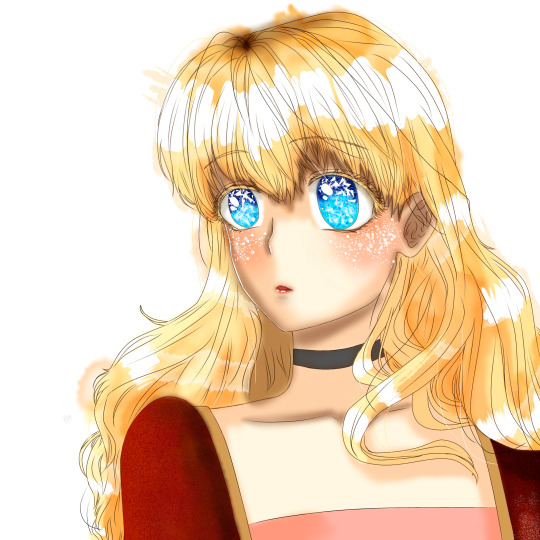
Athy 💕💕 (kinda fail)
#who made me a princess#suddenly i became a princess one day#suddenly i became a princess#i became a princess#one day I became a princess#athy#athanasia de alger obelia#spoon 1122#spoon#sibap#wmmap#wmmap athanasia#plutus
14 notes
·
View notes
Note
Also feature more of Demeter's other children like Despoina, Arion (a horse), Plutus, Corybus, Iacchus, and Philomelus. Giving Persephone maternal siblings would be for fun dynamics. Just imagine if any combination of those siblings were featured in adaptations of Persephone's abduction wondering where their sister went or worrying about their mother and how she feels.
Nothing to add but I agree.
#greek mythology#greek pantheon#ancient greek mythology#Demeter#Arion#despoina#plutus#Iacchus#Philomelus#Corybus#there is an anime called Arion#it’s basically just Arion but not a horse but it’s a fun movie#don’t like how Athena is characterized tho#greek goddesses#greek myths#peresphone#persephone deity
2 notes
·
View notes
Text
Athy in this!!!
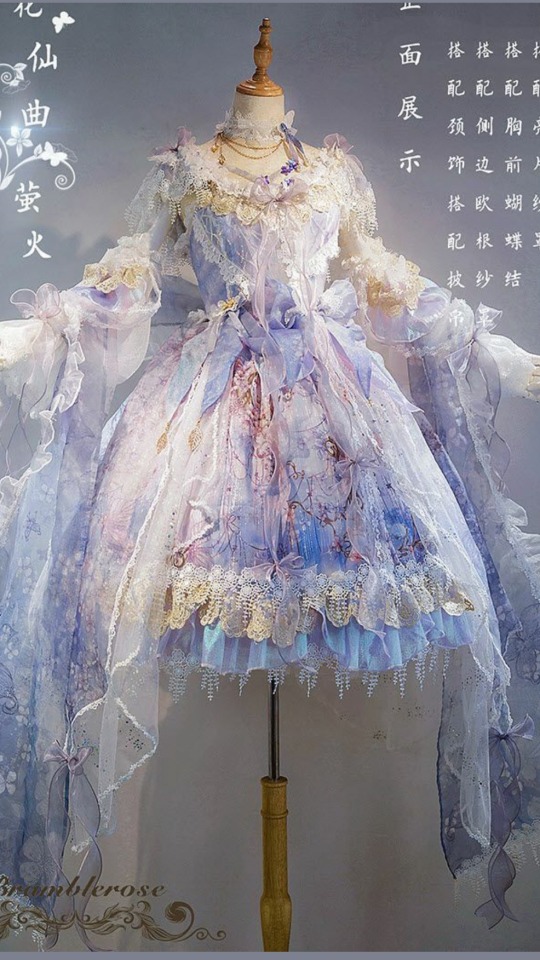
#wmmap athanasia#suddenly i became a princess#sibapod#who made me a princess athanasia#who made me a princess#sbapod#wmmap#suddenly became a princess one day#wmmap athy#athanasia de alger obelia#athy#sbapod athy#sbap#isbapod#suddenly became a princess#i suddenly became a princess#who made me a princess one day#who made me a princess athy#whomademeaprincess#plutus#korean manhwa#korean webcomic#korean webtoon
81 notes
·
View notes
Text
Dante’s Hell: Two sides of the same coin
VIII) Fourth Circle: Greed
Upon entering the Fourth Circle, Dante and Virgil are confronted by a being that is alternatively called “Pluto” and “Plutus”. Called “mankind arch-enemy’s”, this entity, called by Virgil the “cursed wolf of Hell”, after frightening the visitors with an ominous sentence, is promptly shut off by Virgil, who reminds him that their journey is ordered by the powers of Heaven themselves, which makes Pluto/Plutus fall onto the ground, vanquished. Dante here reuses another figure of Greco-Roman mythology, or rather two figures conflated into one: Plutus, the Greek god of wealth and riches (it makes sense he would appear in the Circle of Greed), and Pluto, the alternative name for Hades/Dis Pater, the ruler of the underworld and king of the dead in Greek/Roman mythology. This confusion was originally present in the Greco-Roman culture itself: “Pluto” means “the wealthy one”, “the rich one”, and already the Greeks and the Romans had established that the god of the underworld ruled over both the dead and the underground riches (metals, gemstones, etc…), to the point Plutus himself was sometimes seen as part of the chthonic gods. The fact Virgil’s world so easily break down Plutus/Pluto, as he falls on the ground “like a ship’s sail when the mast breaks”, “deflated, tangled in heap”, shows how this embodiment of wealth, while seemingly grand and frightening, is actually empty and quite weak when confronted with the true powers of good. And more importantly, Pluto/Plutus is given a line that has been a true mystery…
“Pape Satan, pape Satan aleppe”. It is the mysterious sentence that this entity tells to the protagonist as he enters the Fourth Circle of Hell, in a rage-filled tone, to threaten Dante/the Wanderer – and this sentence isn’t written in any actual language or dialect known. Some words can be recognized, such as the name “Satan” repeated twice, but otherwise it is a cryptic mumbo-jumbo, a nonsensical sentence to decipher. Many people have interpreted this sentence without ever agreeing on what it could mean: the most common theory is that this sentence is supposed to be an invocation to Satan, where Plutus invokes the devil himself onto the Fourth Circle, or maybe alerts him of what is going on, possibly invoking him as the “pope”, “emperor” or “god” of Hell.
Unlike the previous circles, here the sinners of Greed are divided into two clear groups, the Prodigal and the Misers, who embody the two aspects of the sin of greed (at least according to Dante). Both groups are cursed into constantly rolling before them enormous, heavy weights, while circling around each other, constantly shouting insults and war-cries at the other group, before finally throwing their weights at each other in a big, thunderous clash. Then each group gains back their weight, rolls out again with more insults and screams, clashes their weights again, and it all repeats forever and ever… Dante throws in a LOT of Greco-Roman references, from the constant rolling of a big boulder/weight as a nod to the legend of Sisyphus, to the clashing of the boulders being described as Charybdis making the waves crash against each other – but here the punishment still fits the contrapasso, because each group is doomed to constantly exhaust themselves by pushing aimlessly a huge, heavy rock that represents the material wealth and the earthly riches they grew so fond and attached to in their life. Of course, there is also a morbid irony in the fact that these two groups are locked into an eternal hatred, each one accusing the other of being the sinner, the vicious, the criminal, while no one realizes they are both in the wrong, due to the embodying the two extremes of greed: the Misers hoarded their wealth for the sake of owning and being rich, selfishly keeping all for themselves in a pure act of avarice, while the Prodigal expressed the reverse excessive love for money and goods, by spending their existence wasting their riches and squandering their belongings instead of putting them to good use. But both are now in Hell two undistinguishable groups in both body and action – only the specifics of the insults they throw at each other can allow to differentiate them. Or little proverbial details – for example the Hoarders have tight fists (showing their inability to lend a hand and their tight hold over their money), while the Squanderers have no hair (because an old Italian proverb says that prodigal will “spend even the hairs on their heads”).
IX) The Fifth Circle: The Styx
It is quite interesting that the second of the rivers of Hell, the Styx (also taken from Greek mythology) actually overlaps with the Fifth Circle of Hell. Indeed the Styx/Fourth Circle here is a sort of swamp, a marsh created by a spring of dark waters “boiling and overflowing” into a ditch, and drowning gray slopes until they turned into the great “slimy pond” that is this circle.
The Fifth Circle is often called the Circle of Wrath, because the main group of sinners here are those that allowed their life to be dominated and burned up by anger – now they forever wander in the swamp of the Styx, naked and muddy, their faces distorted by rage. In a constant state of wrath, they constantly fight each other with their bare arms, heads, feet (and even teeth), into violent muddy and swampy battles where they end up tearing the limbs of each other, without ever resting.
But there is a second group of sinners in the Fifth Circle… Sinners that are not wandering through the marsh, but rather sitting at the bottom of the slimy water, waiting in the black muck at the bottom of the Styx, constantly sighing and making bubbles as they only way of proving they exist. Their crime is apparently to have been “sluggish” or “sad” even in the most joyful and happy of days, and to have let “dejected/gloomy/slothful” smokes smolder in their hearts… This second group of sinners, doomed to stay under the surface, in the dark muds forever, is the subject of one of the big debates of the Divine Comedy… Indeed, from the choice of words and the general behavior they show, many read them as being the sinners of Sloth. But not of Sloth as we know it – rather as Sloth was originally… the vice of Acedia. A quick history lesson: “Sloth” in the seven deadly sins is a very recent addition. Or rather Sloth as “not liking work and loving too much rest and comfort” is a modern reinterpretation of the original sin it corresponded to. Originally, the sin of “sloth”, the sin that led one to not put any effort into things, to neglect their duty, to waste their talent, to dislike hard work, was not “sloth” but a thing called “acedia”. Acedia has been described as many way: the vice of despondency, a spiritual sloth, or the precursor to today’s burn-out. Acedia was a spiritual evil, a mix of sadness and boredom that led one to lose any kind of interest and involvement into whatever project or cause one could be part of, a spiritual torpor and numbness that destroyed any kind of love, hope, joy or care people could pour into the world – and, more than just causing one general disgust and indifference towards anything, could ultimately lead to despair/depression. This was the original sin part of the “seven deadly” – which only came to be known as a material, work-related “sloth” later in history. Many people consider that the sinners at the bottom of Styx are sinners of acedia, and thus it would make the total of deadly sins treated in the Upper Hell five instead of four, by adding Acedia/Proto-Sloth to Lust, Gluttony, Greed and Wrath.
However, there is a group of people that do not agree with this theory because they point out that ALL of the Circles of Hell are focused on one specific vice or sin, and that no other Circle hosts two vices at once. For example Greed has two groups of sinners, but they are both aspects of the disorderly love for wealth that is Greed. So, they argue that the sinners at the bottom of the Styx must be, like those at the surface of the swamp, sinners of Wrath, instead of suffering from Acedia (which is a distinct and different vice). Their theory is that we have to interpret their sin as one of “slothful and apathic wrath”, that make them constantly sad and burning inside – in this viewpoint, the sinners here (often called the “Sullen”) are thought to represent an internalized, passive form of wrath (unlike the exterior, active, violent wrath of the sinners of the suffer), to be sinners guilty of grudge-holding, rancor, spite and bitterness.
The debate is still up – maybe it is one, maybe it is the other, or maybe it is both at the same time, who knows!
Passing by the marsh, our protagonists arrive at the foot of a high tower, with at the top two flames appearing – that another fire answers far-away in the distance. It is actually the signal to call another boatman of Hell, here to take the Pilgrim and Virgil across the Styx proper (as a river flowing away from the marsh), and the one riding those “filthy waves” across the “marsh vapors” and swamp mists is yet again another Greek mythological figure: Phlegyas.
Here to take our protagonists to the famed and dreaded City of Dis…
#dante#inferno#hell#circles of hell#fourth circle#fifth circle#greed#wrath#acedia#deadly sins#seven deadly sins#divine comedy#dante alighieri#cerberus#plutus#pluto#styx
18 notes
·
View notes
Text
Someone: *insults Demeter in the worst ways*
Persephone: .... Usually I am a calm person.
Desponia and Arion: Us too, sis.
Plutus, Eubuleus, and Iacchus: *crack their knuckles*
Khrysothemis: I do hate bloodying up the place.
Dionysus: ... Well I'm fine with mutilating them, they insulted mom! Can we get on with it!
#nobody insults demeter then lives to tell the tale#her kids make sure of that#persephone#arion#desponia#plutus#eubuleus#iacchus#khrysothemis#dionysus#greek gods#greek mythology#incorrect greek gods#incorrect greek mythology#incorrect greek god quotes#incorrect greek quotes#demeter
65 notes
·
View notes
Text

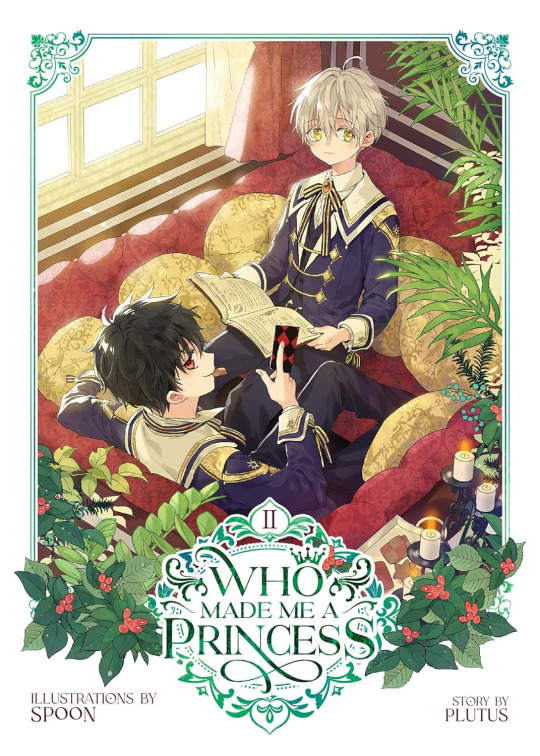
2 notes
·
View notes
Text


“When death separates you from me” by Plutus - a discontinued novel (cover by 휘젤 (@/HUI_Zel_ on Twitter) and typesetting by @/89street_design on Twitter).
More art by: 휘젤
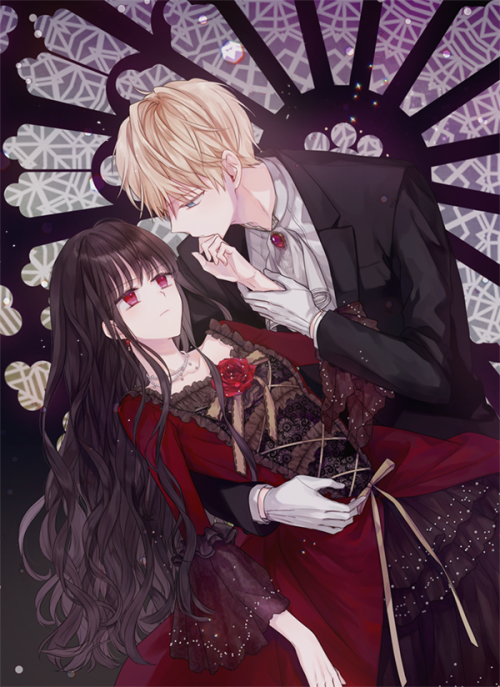
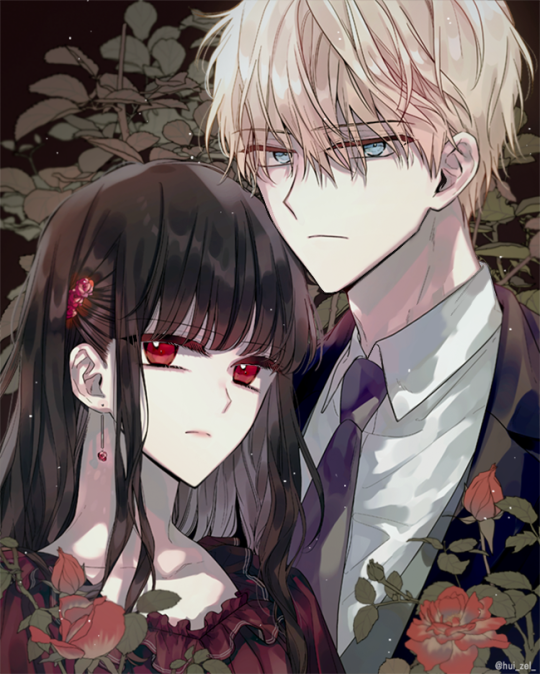

31 notes
·
View notes